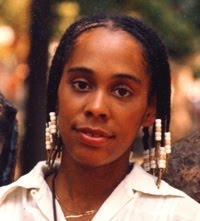Now that Hollywood has had its annual opportunity to wallow in a night of self-aggrandizement before millions, I am reminded of a post on Facebook from a friend who cited a New York Times article, http://www.nytimes.com/2016/02/21/movies/what-does-the-academy-value-in-a-black-performance.html?smid=fb-nytimes&smtyp=cur&_r=0 .
Reading this article lends a voice to others who see the same reality: If you make a film about the so-called "ordinary" lives of minorities, white audiences either want to see how it reconciles the racist past ("42"), or whites want to see a film that depicts how their relationships fare alongside a minority character ("Driving Miss Daisy"). Otherwise, the author writes, if the film features the story of an "ordinary" African-American, for example, then it is a "black film".
I shall not labor to repeat points of the NY Times article; however, I contrast those observations with what has been both my experience at attempts to get published as an author of interracial romance. Bearing in mind that I am playing off Molly McArdle’s February 24 article in Brooklyn Magazine, You Will Be Tokenized: Speaking Out About the State of Diversity in Publishing, http://www.bkmag.com/2016/02/24/you-will-be-tokenized-speaking-out-about-the-state-of-diversity-in-publishing/ , I see publishing as one of many arenas in the entertainment industry. Like Hollywood, which has historically been the citadel of majority white management, the publishing empires that exist today are woefully lacking in minority management, representation, and marketing from the bottom, up. "... publisher Lee & Low’s first ever diversity in publishing survey in January 2016 offered no surprises," writes McArdle. "Publishing is overwhelmingly white (79 percent), straight (88 percent), able bodied (92 percent), and female (78 percent)."
Makes me wonder about the incentive for change, let alone change itself, given those statistics. I surmise that publishing houses, big and small, are sustained by the perpetual influx of an upscale college-graduated literature-based Caucasian demographic, all of whom desire to make a living at what they love. They enter a publishing house, claw their way up the corporate ladder from intern to agent to editor to executive. They accept and publish what and who they are, with interests that embrace what they know.
And that is the key.
Would it be possible for a Caucasian agent or publisher to embrace a romance novel featuring a white man and black woman when their life experience, reading interests, social interactions, or even concepts of marketing potential cannot relate to such a relationship? Is it something about the unfamiliar that causes minority authors to receive the justification for rejecting a query with the phrase, "It's just not the right fit for me"? That their response is subjective and someone else may think differently, so good luck at getting published?
With humility, I once believed it was my writing, my plot, my genre. I certainly never believed I was better than a NY Times bestselling author; only that I was marketable enough to help make the difference in the profit of an agent or publisher. And so that you understand I am not merely treading on what may be viewed as my sour grapes, I do understand where publishing professionals are coming from: It is a business. They are there to make money, something I wholeheartedly support.
I shall give them benefit of the doubt, and unlike Hollywood, which does great injustice to minorities in propagating screen stereotypes, it is my hope that publishing is not that overtly unscrupulous--hopefully they are merely behind the times. And I hope I am not being naively optimistic about that. But what they need to consider is this: Writers and readers come in races of all colors, not only white! (Was I shouting? My apologies.) If anything, ignoring diversity in this literate entertainment industry is to deprive the agent/publisher matrix of a pool of minority talent as well as the extra income that would flow in from readers of color. Poor business, if you ask me.
So to post best-selling author Roxanne Gay's lament about diversity in publishing, or more accurately, the lack thereof, I leave you with her words about the real reality: "The problem is and has always been the exclusion of writers of color and other marginalized writers who have to push aside their own work and fight for inclusion, over and over and over again. We beg for scraps from a table we're not invited to sit at. We are forced to defend our excellence because no one else will."
As for me, I not only know my ground, but I stand on it, head high as I push forward.
